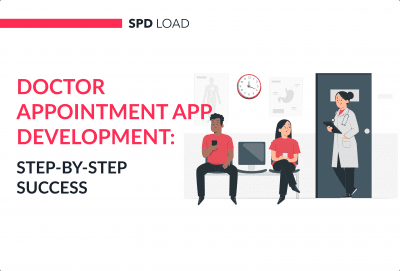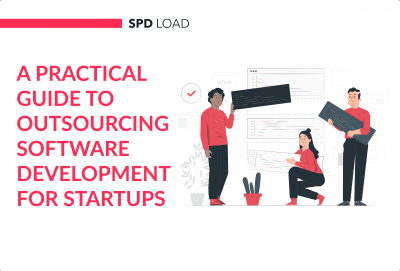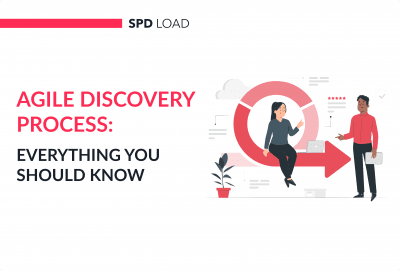34 Tips That Will Improve Your Web Development Skills
- Updated: Nov 12, 2024
- 9 min
Staying on top of your game is tough for dedicated web developers. With new frameworks, updates, and best practices emerging constantly, what does it take to level up your skills in 2025?
Whether you are new to web development or have years under your belt, a little targeted advice can work wonders.
We compiled 34 practical tips to help you work smarter, boost your toolkit, and become a more well-rounded developer.
This guide uses industry research and real-world experience to help you upgrade your web development abilities.
Ready to take the next step? Let’s explore the tactics top developers use to remain competitive and valuable in a rapidly evolving landscape.
Consistent improvement is key to delivering your best work while advancing your career.
Wondering do I need a website for my business? Find out why the answer is almost always yes.
Transform your ideas into reality with our dedicated development team — contact us today!
Tips on Improving Web Development Skills
There is so much you can do to become a better web developer this year — from learning new programming languages and frameworks to collaborating with other developers and staying updated with industry news and events.
Let’s dive into the nitty-gritty of upskilling yourself.
1. Stay Up-to-Date With The Latest Trends
Follow industry blogs, attend conferences, and network with other developers to keep up with the latest trends in web development. This will help you stay ahead of the curve and improve your skills.
Here are just some of the conferences that you can consider attending:
- Frontend Masters Conference — This conference focuses on front-end development and covers topics such as JavaScript, React, Vue.js, and more.
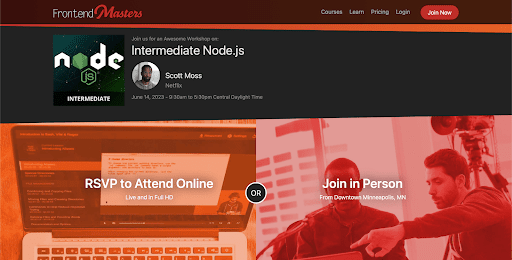
- Smashing Conference: It involves a range of topics related to web development, including front-end development, performance, and design.
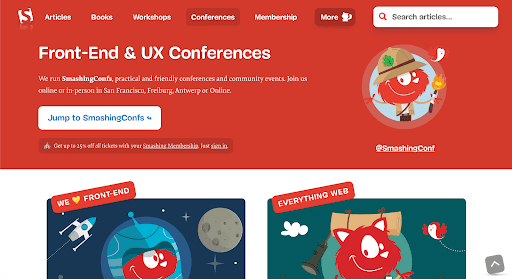
- UX360 Conference: This event presents the latest UX and design research – from planning and conducting to analysis and implementation of UX insights.
2. Learn New Technologies
The world of web development is constantly evolving, with new technologies and frameworks emerging all the time.
Make sure to stay current with new technologies, such as serverless architectures, Progressive Web Apps (PWAs), and codeless automation testing.
3. Practice Coding Regularly
No matter if you’re just searching for a job in a dedicated development team or already an experienced developer, you should know that, like any skill, coding requires regular practice to improve.
Set aside time each week to work on coding projects, practice your coding skills, and try out new technologies.
4. Get Involved in Open-Source Projects
Getting involved in open-source projects can be an invaluable experience for web developers of all levels. Not only can you gain practical experience working on real projects, but you can also expand your skill set and network with other developers.
The open-source community is a great way to build your portfolio and showcase your abilities to potential employers or clients. When searching for a project to contribute to, look for ones that align with your interests and skills.
5. Collaborate With Other Developers
Working with other developers can help you learn new skills, improve your coding practices, and get feedback on your work. Look for opportunities to collaborate on projects, such as hackathons, meetups, and online forums.
For example, you can check out these popular hackathons:
- HackMIT — This hackathon is held annually at the Massachusetts Institute of Technology (MIT) and attracts students from around the world. It focuses on technology and innovation.

- Hack the North — This is Canada’s largest hackathon, held annually at the University of Waterloo. It attracts students and industry professionals from around the world.

- PennApps — This hackathon is held twice a year at the University of Pennsylvania and attracts students and industry professionals from around the world. It focuses on technology and innovation.
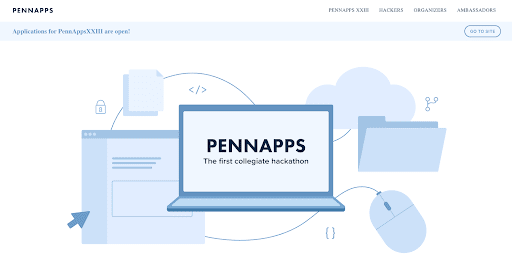
6. Develop Soft Skills
While technical skills are important, soft skills such as communication, problem-solving, and teamwork are also critical for success in web development. Work on developing these skills through practice, feedback, and training.
7. Stay Organized
Web development projects can quickly become complex and overwhelming. Stay organized by breaking down tasks into manageable chunks, using project management tools, and setting realistic deadlines.
Explore the best project management software to find solutions tailored to your business needs.
8. Use Analytics to Track User Behavior
Analytics tools such as Google Analytics or another marketing analytics tools and software can provide valuable insights into how users interact with your web applications. Use these tools to track user behavior, identify patterns, and optimize your applications for better performance and user experience.
9. Collaborative Learning
Collaborative learning is an approach to learning where individuals work together in groups to achieve a common learning goal.
Through sharing knowledge, expertise, and ideas, you can learn from each other and develop new skills and competencies that can help you upskill yourself.
Collaborative learning can also provide opportunities for peer feedback and support, which can enhance learning outcomes and improve overall performance.
9. Focus On Accessibility
Web accessibility is becoming increasingly important, as more and more users rely on assistive technologies to access the web.
Make sure your web applications are accessible to all users, including those with disabilities, by following accessibility guidelines and best practices.
10. Stay Up-to-Date With Security Best Practices
Security is a critical concern for web developers, as cyber threats continue to evolve and become more sophisticated. Stay up-to-date with security best practices, such as using HTTPS, encrypting data, and using secure coding practices.
11. Learn About SEO
Search engine optimization (SEO) is an important aspect of web development cost, helping to improve the visibility of your web applications in search engine results pages (SERPs).
Take a free SEO course, such as optimizing your content for keywords, building high-quality backlinks, and using schema markup.
12. Keep Your Code Clean and Organized
Writing clean, organized code is essential for maintaining the long-term health of your web applications.
Follow coding best practices, such as using comments to explain your code, naming variables and functions clearly, and maintaining consistent coding style and formatting.
13. Practice Responsive Design
With more users accessing the web on mobile devices, it’s important to ensure that your web applications are responsive and can adapt to different screen sizes.
Practice responsive design principles, such as flexible layouts and media queries, to ensure your applications look great on any device.
14. Test Your Applications on Multiple Devices and Browsers
To ensure that your web applications work properly on a wide range of devices and browsers, it’s important to test them thoroughly.
Use tools like BrowserStack or CrossBrowserTesting to test your applications on different browsers and devices, and fix any issues that arise.
15. Use Version Control
Version control tools like Git are essential for managing code changes, collaborating with other developers, and keeping track of your code history. Learn how to use version control effectively, and use it for all your coding projects.
16. Use a Code Editor With Advanced Features
A good code editor can save you time and help you write cleaner, more organized code. Look for a code editor with advanced features like syntax highlighting, code completion, and code snippets.
17. Learn About Cloud Computing
Cloud computing is becoming increasingly popular in web development, allowing developers to build and deploy applications more quickly and efficiently.
Whether with accounts payable software or a robust file storage and sharing system, Cloud-based systems also allow you to save data in multiple secure and physical locations to guarantee that your records are never lost.
Learn about cloud computing platforms like AWS, Google Cloud, and Azure, and how to use them to build scalable web applications.
This article on the cloud migration discovery phase outlines the key steps for a successful migration.
18. Get Feedback From Users
User feedback is essential for improving the user experience of your web applications. Use tools like Hotjar or UserTesting to collect feedback from users, and use that feedback to make improvements to your applications.
18. Continuously Improve Your Skills
Web development is a constantly evolving field, so it’s important to continuously improve your skills and stay up-to-date with new technologies and best practices.
Take online courses, attend conferences, and network with other developers to continue learning and growing as a developer.
19. Learn a New Programming Language
Learning a new programming language can broaden your horizons as a developer and help you tackle new challenges. Consider learning a language that is popular in web development, such as JavaScript, Python, or Ruby.
20. Use a CSS Preprocessor
CSS preprocessors like Sass or Less can make writing CSS more efficient and organized, allowing you to write code faster and with fewer errors.
21. Use Task Runners or Build Tools
Task runners like Gulp or Grunt can automate repetitive tasks in your development workflow, such as compiling Sass or minifying JavaScript. Build tools like Webpack can help you optimize your code for production and improve performance.
22. Use a Front-End Framework
Front-end frameworks like React, Vue.js, or Angular can help you build complex user interfaces more quickly and with less code. They also provide a consistent architecture and coding patterns, making it easier to collaborate with other developers.
23. Use a Back-End Framework
Back-end frameworks like Ruby on Rails, Django, or Express can help you build scalable and secure web applications more quickly and with less code. They also provide built-in features like user authentication, database management, and routing.
24. Use open-source Libraries and Tools
Open-source libraries and tools can save you time and effort by providing pre-built solutions to common problems in web development. Examples include jQuery for DOM manipulation, Moment.js for date and time formatting, and Lodash for utility functions.
25. Follow Web Accessibility Guidelines
Web accessibility is the practice of ensuring that web content is accessible to users with disabilities. Following accessibility guidelines like the Web Content Accessibility Guidelines (WCAG) can improve the usability and inclusivity of your web applications.
26. Use Analytics and Monitoring Tools
Analytics and monitoring tools like Google Analytics or New Relic can help you track user behavior and performance metrics in your web applications, allowing you to identify areas for improvement and optimize your code.
27. Use Containerization and Virtualization
Containerization tools like Docker or Kubernetes can help you manage and deploy web applications more efficiently and reliably, by encapsulating them in self-contained units called containers.
Virtualization tools like Vagrant can help you create development environments that mirror your production environment, improving consistency and reliability.
28. Use Artificial Intelligence and Machine Learning
Artificial intelligence and machine learning technologies are increasingly being used in web development to automate tasks, personalize content, and improve user experiences.
Learn about these technologies and how they can be applied to web development.
By adding AI skills to your portfolio, you can easily get more chances to work in companies using machine learning and automation such as Phrasee or CopyAI.
See the numbers behind the AI revolution in our latest article on AI statistics.
29. Learn About Serverless Computing
Serverless computing is a model where the cloud provider manages the infrastructure and automatically scales it based on demand, allowing developers to focus on writing code.
Learn about serverless computing platforms like AWS Lambda, Azure Functions, or Google Cloud Functions, and how to build serverless applications.
30. Learn About Progressive Web Apps
Progressive web apps are web applications that provide a native app-like experience to users, by using modern web technologies like service workers and web app manifests. Learn about progressive web app development and how to build them.
31. Use Design Systems
Design systems are a collection of reusable components, guidelines, and best practices for creating consistent and cohesive user interfaces. They can help you build better user experiences more quickly and with less effort.
32. Use Content Management Systems
Content management systems like WordPress, Drupal, or Joomla can help you build and manage complex websites more easily, by providing pre-built templates, plugins, and integrations.
Considering custom WordPress website development? We explain the benefits and what it takes to get started.
34. Use API Integrations
APIs or Application Programming Interfaces are interfaces that allow different applications to communicate with each other. Integrating with third-party APIs can help you add new features or data sources to your web applications, without building everything from scratch.
Summing Up
In conclusion, improving your web development skills is essential to stay competitive in the ever-evolving digital landscape. By following the 36 tips mentioned in this article, web developers can enhance their knowledge, sharpen their skills, and expand their expertise in web development.
From mastering new programming languages and frameworks to staying updated on the latest web development trends and best practices, there are plenty of ways to take your web development skills to the next level.
With dedication, persistence, and a growth mindset, web developers can achieve their professional goals and make a meaningful impact in the world of web development.
So, don’t hesitate to apply these tips, experiment with new techniques, and never stop learning to become a successful web developer in 2025 and beyond.
Finding the right partner is key — here’s how to choose a web development company for your business.







